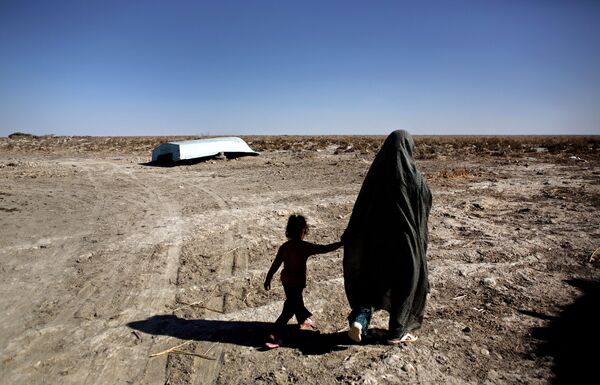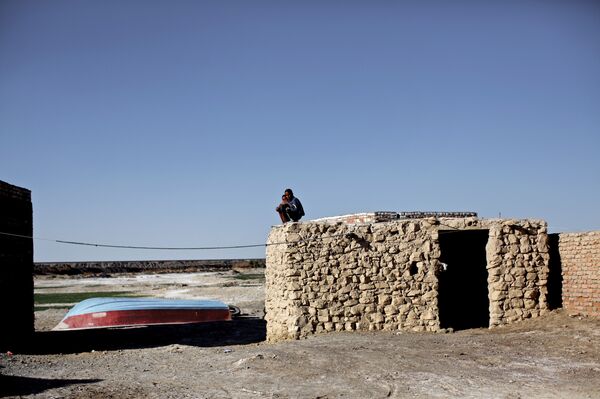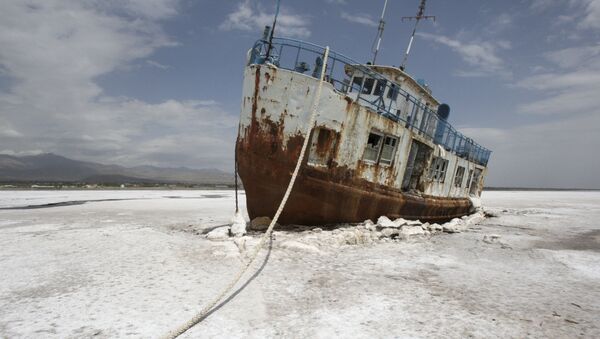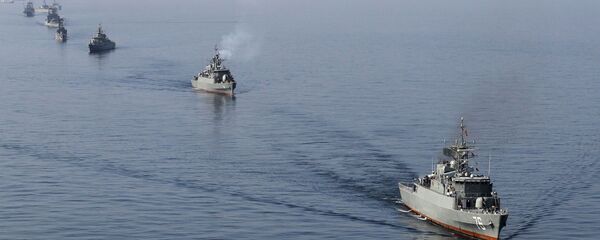Salman Al Ansari, founder and president of the Committee on Public Relations between the United States and Saudi Arabia, recently published an article on website The Hill in which he called for normalization of relations between Saudi Arabia and Israel.
According to Ansari, Israel can provide Saudi Arabia with substantial assistance for the country's water supply. The Saudi kingdom is the largest country in the region that does not have its own source of fresh water.
However, reconciliation for the sake of water still looks like quite a whimsical idea according to the experts.
Sputnik Persian spoke with Ph.D. Professor of Water Resources from the University of Newcastle, Seyed Mokhtar Hashemi, about why other countries with arid climates such as Iran do not import fresh water, although they are badly in need of it.
“Is there a problem of water shortage in Iran? The question is relative because if we consider the issue on a global scale, the situation in many countries in West Asia and North Africa is much worse,” Hashemi said.
“It is worth noting though that along with all kinds of threats that exist in these areas, food and water security are the key issues of local policy,” the professor added.
Growing urbanization leads to water shortage
“Iran is an arid country and faces drought and lack of water. Climate change, over-population, growing urbanization and construction of large cities in arid areas has a significant impact on the country's water resources,” Hashemi told Sputnik Persian.

Thus, lack of water in areas with an arid climate is a natural phenomenon. However, the water crisis tends to increase given that the system of public administration, especially that part which deals with water, does not provide necessary provision levels of fresh water.
Talking about the resources of Iran and its ability to cover the water shortage, the professor said that, “The government is taking active measures to cover the water deficit. One of the steps that are now being actively undertaken by the state is the transfer of water from one region to another, which, however, creates social and political tension between the individual regions.”
However, it is worth noting that the Gulf of Oman water is desalinated, which helped to increase the amount of available water for 2/3 of the population in 17 provinces in the south and east of Iran.
In other words, programs to address the water crisis exist but they have been criticized by experts, as they lack assessment of the social, environmental and economic effects of the water shortage.
Neighboring countries to the rescue
Social issues related to transference of water, as well as issues relating to the environment, require serious attention and demand for water resource management programs.

The professor further said that he has heard several statements made by Iranian President, Hassan Rouhani about the possibility of purchasing water from Iran’s neighboring countries.
“I agree with him, that today this possibility is somewhat exaggerated. Rather, it requires multilateral efforts aimed at addressing the common problems of water crisis that we are facing in the region,” Hashemi said.
“One of the countries from which we can theoretically get water is Afghanistan, where water diplomacy is rather undeveloped,” he added.
“Iran, by the way, in turn, does not prevent the dissemination of water into Iraq. Thus, the question of the transfer of water is rather a question of investments to improve water supply to dry regions.”
He further said that there are bilateral agreements with neighboring countries on these issues, but there are still difficulties in decision-making and a lack of political will to address these problems.
Lack of stable policies
In general, there are many different ways to fix the water crisis. However, each of them requires a detailed analysis.
In the near future, Iran will undoubtedly be faced with a large-scale drought if coherent and stable policies to resolve the water crisis are not applied.
According to the United Nations in the past decade, consumption of fresh water around the globe has increased by an average of three times. However, about 1 billion people have no access to drinking water at all and more than 2.5 billion people faced shortages of drinking water at least for 1 month each year.
The UN report notes that about 2.5 billion people due to the scarcity of clean water are exposed to diseases such as cholera and fever, which results in the death of many people.







